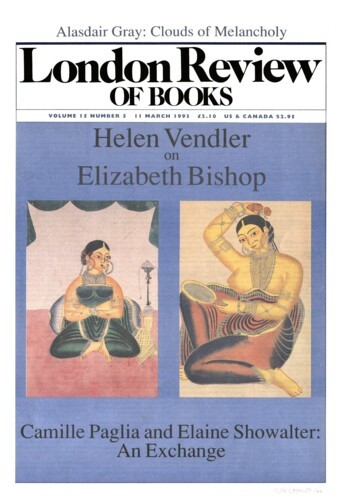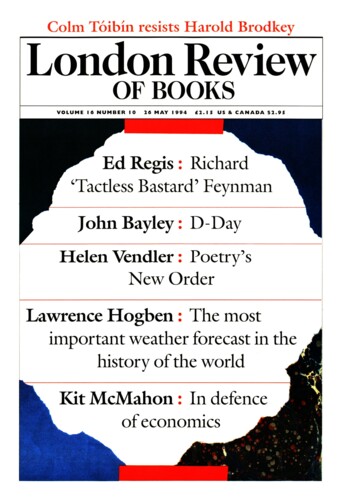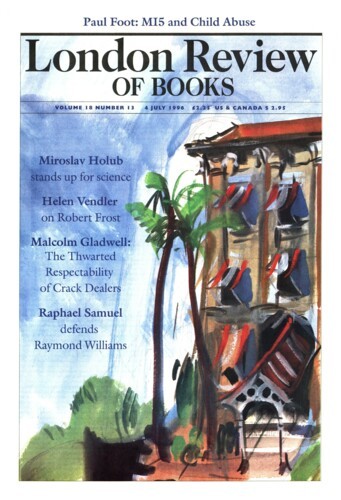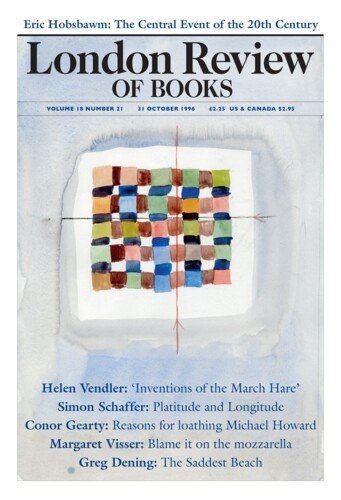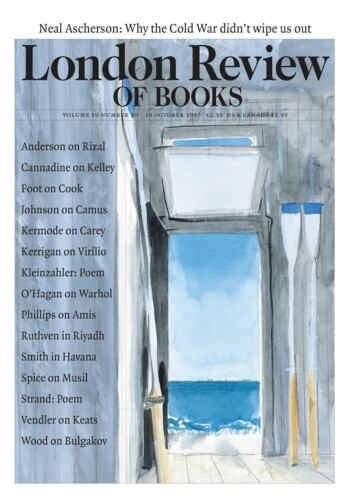The Numinous Moose
Helen Vendler, 11 March 1993
Brett Millier’s new biography of the American poet Elizabeth Bishop (1911-79) is a substantial one, adding extensively to the biographical material provided by David Kalstone in Becoming a Poet (covering Bishop’s friendships with Robert Lowell and Marianne Moore) and by Lorrie Goldensohn in Elizabeth Bishop: The Biography of a Poetry (relating, notably, Bishop’s 15 years in Brazil). Millier (who teaches at Middlebury College) surveys Bishop’s life from cradle to grave, ordering its events in a readable narrative interspersed with paraphrases of poems which illuminate the life. This is not the most interesting use of poems, but it is a legitimate one. Millier has worked in the several archives of Bishop material, and has mined Bishop’s notebooks, rough drafts and letters (including previously restricted ones) to good effect. The few errors that I (from my limited knowledge) could spot were not serious ones; Millier, for instance, seems to think that classes at Harvard were not co-educational when Bishop arrived to teach there in 1970: ‘Harvard and Radcliffe had not yet merged. Her undergraduate students would all be male.’ In fact, courses had been co-educational since World War Two, when the classrooms were emptied of men. People with an intimate knowledge of Bishop’s life, or, say, of Brazilian politics, may find similar inaccuracies here or there. But the general external contours of the life seem adequately represented here, and the paraphrases of the poems are, for biographical purposes, reliable. Millier has conversed with many of Bishop’s friends and acquaintances, and her attitude to a life made persistently disastrous by alcoholism is a sympathetic and generous one.
